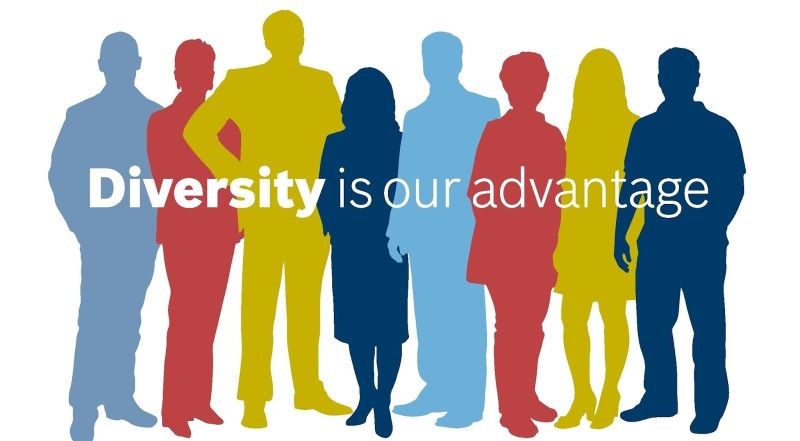Celebrating diversity in the workplace is essential for creating a positive and productive environment. It fosters creativity, encourages collaboration, and enhances employee satisfaction. When teams reflect various backgrounds and perspectives, they can approach problems in innovative ways and connect better with diverse customers.
Companies can implement several strategies to honor diversity. Organizing cultural events, hosting discussions on inclusivity, and providing diversity training can help raise awareness and appreciation among employees. Encouraging employees to share their traditions and experiences creates a sense of belonging and unity in the workplace.
By taking steps to celebrate diversity, organizations not only strengthen their internal culture but also improve their overall performance. Embracing differences leads to a richer work experience and positions a company as a leader in a diverse global market.
Establishing a Foundation for Diversity and Inclusion
A strong foundation for diversity and inclusion is vital for any organization. This foundation includes creating an inclusive culture, developing fair policies, and using inclusive language. These elements help foster a workplace where everyone feels valued and empowered.
Creating an Inclusive Company Culture
An inclusive company culture encourages openness and respect among employees. To build such a culture, leaders must actively promote diversity, equity, and inclusion (DEI) through training and awareness programs.
Offering workshops on unconscious bias can help staff recognize their own biases and learn how to overcome them.
Additionally, creating safe spaces for discussions can empower voices that may otherwise go unheard. This can include regular check-ins or group meetings where employees can share their experiences and concerns openly.
Developing Policies for Equity and Fair Treatment
Establishing clear policies that promote equity is crucial. These policies should outline hiring practices, promotions, and evaluations to ensure fairness for all employees.
Using structured interviews can minimize bias in the hiring process.
Furthermore, organizations should implement regular assessments of policies to identify and address any areas of inequality.
Having an inclusion council can help guide these efforts, ensuring diverse perspectives are considered in decision-making. This council can also focus on creating pathways for career advancement for underrepresented groups.
Incorporating Inclusive Language and Accessibility
Using inclusive language is essential in promoting a welcoming environment. Language should reflect respect for all individuals, regardless of their background.
This includes avoiding jargon that might exclude or confuse team members.
Accessibility also plays a critical role in inclusion. Organizations must ensure that physical spaces and digital tools are accessible to all employees.
Offering resources like closed captioning and alternative formats for documents can help meet diverse needs.
By prioritizing accessibility, companies show their commitment to an inclusive workplace for every employee.
Celebrating and Leveraging Diversity in the Workplace
A diverse workplace can drive innovation and enhance employee engagement. By focusing on inclusion, companies can foster belonging, improve retention rates, and create a culture that values unique perspectives.
Fostering Belonging Through Employee Resource Groups
Employee Resource Groups (ERGs) support underrepresented groups and foster belonging. These groups provide a safe space where employees can share experiences and network. They help individuals feel accepted and valued, boosting morale and engagement. ERGs also offer opportunities for members to contribute to company decisions, shaping policies to promote inclusivity.
Companies can benefit from these groups by gaining insights into the needs of diverse employees. ERGs often organize events like cultural showcases, which celebrate differences and educate others about various backgrounds. This not only enhances understanding but also strengthens relationships across teams.
Promoting Diversity with Recruitment and Retention Strategies
Diversity in recruitment ensures a wider talent pool, allowing companies to access unique perspectives. A structured recruitment process that prioritizes diversity can greatly enhance the workforce. This includes using inclusive language in job descriptions, highlighting commitment to diversity, and reaching out to diverse communities.
Retention strategies are equally important. By creating an environment that values empathy and allyship, businesses can improve employee retention. Providing mentorship programs tailored for underrepresented groups encourages professional development and promotes inclusivity. Focused efforts on job sharing and flexible work arrangements also support diverse employees, leading to higher retention rates.
Encouraging Cultural Exchange and Team Building
Team building activities play a vital role in celebrating cultural diversity. A popular method is a cultural potluck, where employees share dishes from their backgrounds. This fosters connections and opens dialogue about different cultures.
In addition, organizing diversity hackathons can encourage collaboration among teams. These events allow employees to work together on projects that promote inclusion, generating innovative solutions to workplace challenges. By encouraging shared experiences, companies can build strong bonds among employees, enhancing teamwork and morale.
Advancing Education with Diversity Training and Workshops
Diversity training is essential for cultivating an inclusive workplace culture. Workshops on inclusive language can help employees understand the importance of respectful communication. This leads to a more positive environment and improves employee engagement.
Offering training sessions focused on cultural awareness equips employees with the skills to navigate diverse interactions confidently. Regular workshops and training programs also provide ongoing education about diversity issues, promoting empathy and understanding. This continuous learning fosters adaptability and supports employees’ professional advancement within the company.


